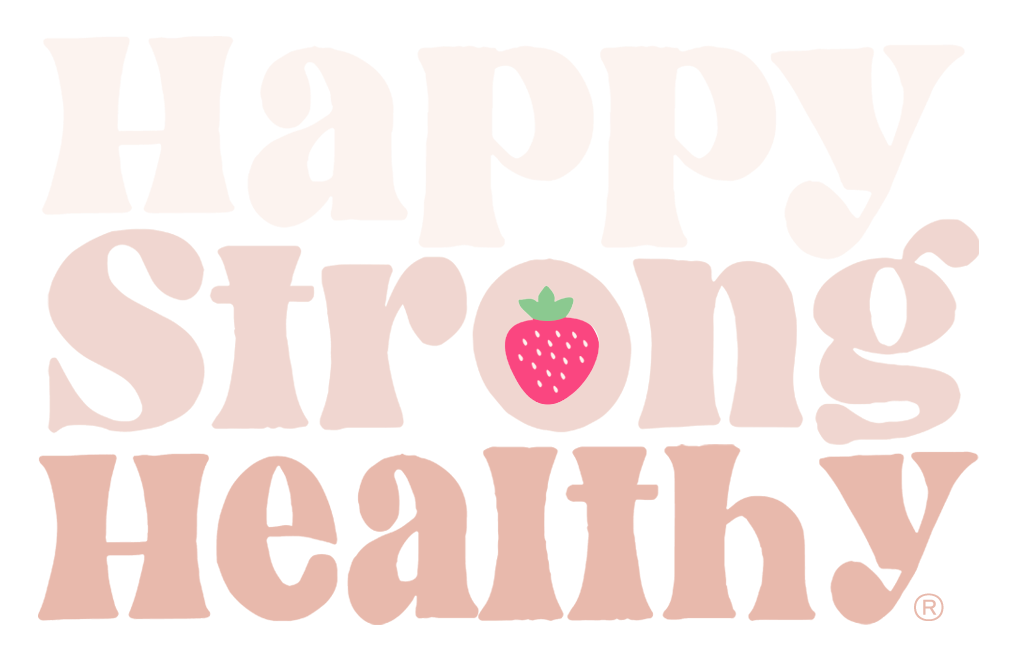Moving Out of Diet Culture
You’ve done the work. You’ve rejected the diet mentality, seen how harmful it is, become educated on all the ways it shows up and sneaks up on you, learned about real nutrition and health (rather than restrictive fad diets), and have started the journey to becoming an intuitive eater.
BUT… now you notice the diet talk everywhere: the workplace, the gym, restaurants, holidays, family functions, social media, the list goes on. All anybody can seem to talk about around food, eating, and exercise is a function of diet culture. It makes sense, with an estimated 45 million Americans dieting each year, and spending over $70 billion annually on products and services related to feeling like our bodies need to change. So you may be feeling like you don’t fit in anymore, and get the looks of shock and confusion if you try to explain you’re no longer on a diet, you are at peace with your body, or you want to move simply because it feels good.
You were just in that diet culture world, and now you’re not. It’s like moving out of a neighborhood with a tight-knit community, and all the gossip you’ve taken part in for years you no longer relate to. But you also know that you’ve moved into an even better (diet culture free) neighborhood, with all this potential. While you are grieving the old one and haven’t met a new community yet in the new one, you still see what the old friends are up to and talking about… okay you get the analogy!
First, it is important to recognize that grief is a normal part of this transition out of diet culture, especially if it was part of your identity for so long. You might find yourself missing some of the things that diet culture gave you, such as:
Identity
A sense of moral superiority
A sense of belonging and access to a support system
A sense of control
Something to talk about and bond over
Next, remind yourself of what you know now (why you moved away from diet culture in the first place):
You’re purpose and worth is not related to your diet or your body size
Food is not linked to morality
Belonging is what diet culture wants you to feel to keep you in it
You cannot control your weight (remember set point theory!)
There are SO many other things to talk about and direct your energy towards
Further, when that coworker raves about how their new diet is working wonders and doubt starts to creep in, it might be helpful to remember how dieting has made you feel in the past, how it has worked out for you (or not), and internally recall the harms of dieting such as:
95% of diets fail, and most individuals will regain weight lost within 1 - 5 years
Weight cycling can be harmful, with increased risk of developing cardiovascular disease, Type 2 diabetes, and high blood pressure
Dieting can lead to increased cravings, overeating, binging, and increased risk of developing an eating disorder
Dieting can lead to fatigue, hormonal changes, loss of muscle mass, low bone mineral density, menstrual disturbances, and decreased metabolism
With all of this, you may be wanting to shout these facts and your new way of living from the rooftops so that everyone you care about can also come to understand. However, it is not your job or responsibility to help them see it. Instead, when conversations, thoughts, and feelings inevitably arise surrounding diet culture, try some of the below tips to stand firm in your new anti-diet arena.
Tips for various diet culture situations:
During conversations - these might be instances where you find yourself in the middle of a diet culture topic, such as coworkers comparing meals or discussing the latest diet they are on.
Say nothing: if you are okay with hearing these topics discussed for a period of time, simply choose not to participate. Saying nothing is still saying something!
Excuse yourself: if you are not in the mood to hear about it or it’s dragged on long enough, excuse yourself to use the restroom or remove yourself from the environment altogether.
Change the conversation: pivot! Bring up a different topic to talk about such as future travel plans, weekend plans, latest TV shows/movies/books, even career plans. This can sound something like: “I feel like we spend so much time talking about diets and weight loss, let’s try talking about something else today like ____.”
Set boundaries: this one is tough, but so important, especially around individuals or groups of people you interact with often. This can sound like: “I would appreciate it if you would not comment on my body or my food choices.”
Plant the seed: again, it is not your job to convince anyone of your choices. If you are feeling confident and like you have a response that might be helpful, planting the seed for others can be a great way to say your piece and impart some wisdom. It could be as simple as responding to a friend saying she’s being “bad” for eating a certain food: “you’re not bad for eating _____, bad isn’t an ingredient in food!” Or, instead of describing food based on how many calories it has, or how it’s marketed to change our bodies, try describing it with different adjectives such as: “satisfying, comforting, refreshing, crunchy, salty, spicy, sweet, fun, delicious…”, the list goes on!
Remain confident in your choices: this means having an internal dialogue in your own mind about all that you are gaining from saying goodbye to diet culture. Refer to the section above about recalling the general harms of dieting, and also reflecting on where dieting has led you in the past.
Social media - the rise in social media has us comparing ourselves to influences, friends, and family whenever we open our phones. Making a few small changes to curate your feed to serve you in food freedom rather than drag you back to diet culture is vital in your success and saves you so much mental energy.
Realize that less than 5% of all people naturally have what is deemed the “perfect body”
Remember social media is only part of the picture of a person’s life, and is most often full of editing
Unfollow accounts that bring up negative feelings for you or make you feel “less than”
Follow accounts that bring you joy and help you continue to respect your body instead of want to change it
Finding a new support system - just like you had that support system when you were entrenched in the dieting world, there is a whole support system waiting for you in this anti-diet space! Seek it out through books, podcasts, blogs (like this one!), and communities of individuals who have also moved to this space.
Redefining your identity - throughout this new understanding of food and your body, you will most likely find yourself with so much more time and energy to devote to the things you’ve perhaps felt you haven’t had time for. You will also have given up your “dieting” identity and chasing a smaller body. All of this means that you now have the space to reflect upon who you truly are, who you want to be, and how you want to be spending your time and energy. Try those new hobbies you thought you never had time for, or were waiting until you had the “perfect body” to feel like you deserved to do them. Taking part in these hobbies is also a wonderful way to meet new people who share similar interests away from diet culture. You deserve to do all of those things now and reclaim your joy.
Others may not understand or even approve of your new mindset surrounding food and health, but you do, and you do not need to convince them. It is your body, and your life to live. Incorporating these tips slowly into your interactions can help you peel back the layers of built up diet culture, and will consistently reinforce the idea that you’ve made the right choice to move away from it, towards a fuller life.
References:
Rumsey, A. (2021). Unapologetic eating: Make peace with food and transform your life. Victory Belt Publishing.
Tribole, E., & Resch, E. (2020). Intuitive Eating, 4th edition: A Revolutionary Anti-Diet Approach. St Martin's Press.
https://lindnercenterofhope.org/blog/why-dieting-can-be-harmful/
https://alissarumsey.com/how-to-respond-to-diet-talk/
https://www.npr.org/2021/12/23/1067210075/what-if-the-best-diet-is-to-reject-diet-culture
Written by Tori Rinsem
Hi, I’m Tori! Current NYC-based master’s student, dietetic intern and RD-to-be. I love finding the joy and ditching the stress in two things we do each day - eat and move! I’m SO happy to be sharing this space with you, and continuing to find joy as we learn and grow.
Learn more about me and the HSH offerings here.










































February is American Heart Month, and as a registered dietitian, I want to share my secret heart-healthy tip with you: consider adding Florida Orange Juice to your daily routine!